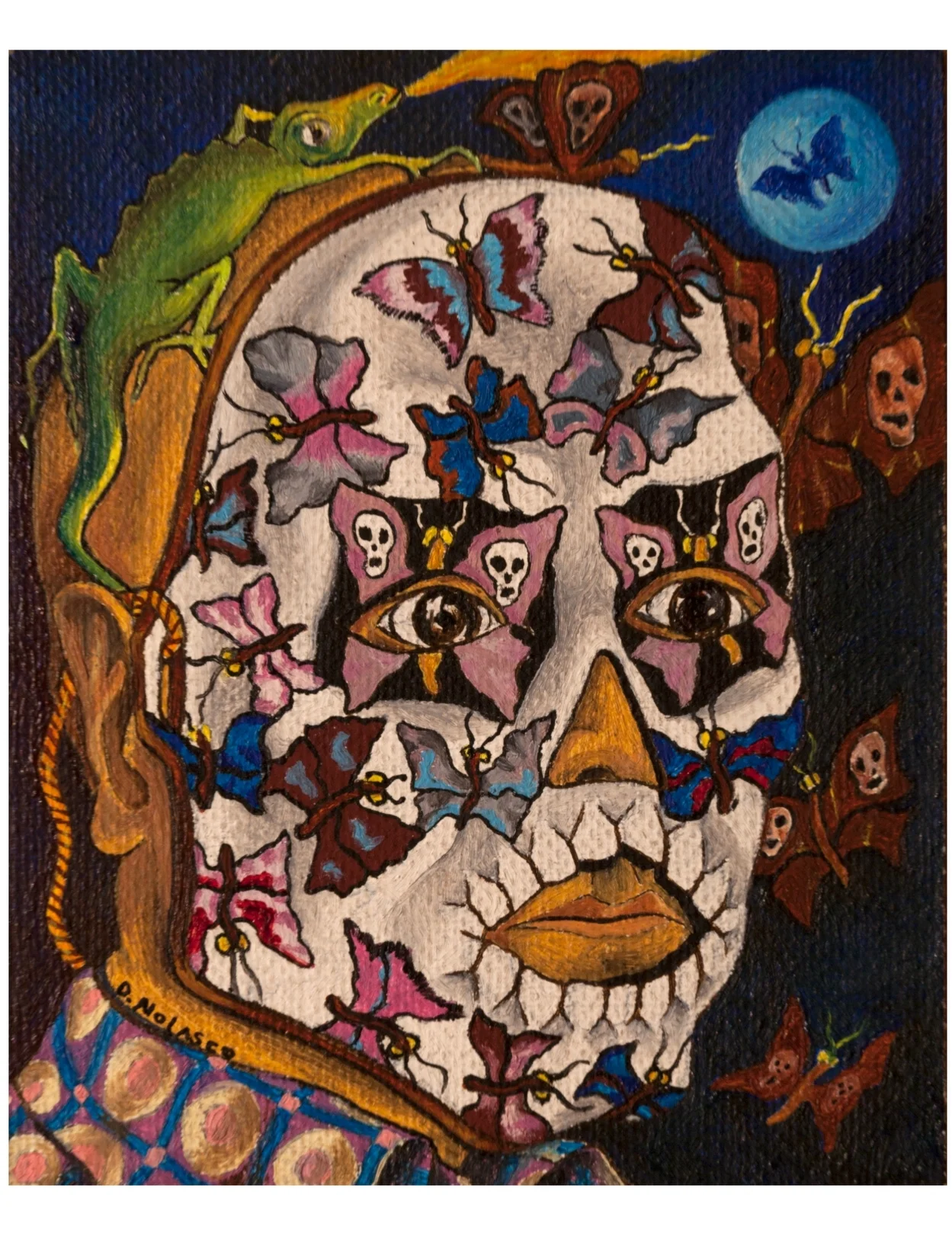Educa
7-day Continuing Education Course for K-12 teachers
Campesino by Armando Campos
Máscara by Dagoberto Nolasco
*THE COURSE IS NOW FULL*
We are thrilled with the overwhelmingly positive response to this course. It filled up in less than two weeks. We are already in the beginning stages of planning trips for the summer of 2019. If you are interested in these or would like to keep up with the project please signup here.
Location: El Salvador
Date: August 6-14, 2018
Participants: 7-9. Open to all K-12 teachers in MD/DC/VA
Includes: 3-credit course, shared housing at Lake Coatepeque, all meals and all in-country transportation. Transportation from airport available in groups on arrival and departure days.
Early Bird Registration May 15, 2018: $1,900
Registration Deadline June 1st, 2018: $2,095
See FAQ below for more info.
Course Description
Visual Literacy as a Tool for Cultural Proficiency in the Classroom: El Salvador as a Case Study is a professional development immersion, 3-credit course for teachers in the Washington, D.C. metro area. Salvadorans are the largest and fastest growing immigrant group in the Washington, D.C. region. For example, Latinxs now represent the largest population in Montgomery County Public Schools. The course was developed to create a more culturally relevant and equitable education. It includes pre-immersion, in-country travel and post-immersion work. It promotes teacher collaboration and applies standards-aligned tasks with direct impact on classroom learning, while fostering cultural proficiency and academic excellence. Teachers will acquire the tools needed to integrate the diversity of cultures and experiences that are represented in their classrooms.
Through an immersive experience, teachers learn visual literacy skills, practice global cultural awareness and develop a deep understanding of the culture, history and art of the Central American region. In addition, teachers integrate new knowledge about notions of place, identity, representation, and transnationalism. During the immersion we will visit cultural sites, work with historically important archives, discuss readings and hear from Salvadoran and Central American scholars. Together we will explore counter-stories that challenge the widespread narrative about Central America.
Overview
The course equips teachers with multidisciplinary content, curricular resources, and methods of inquiry to employ in their K-12 classrooms. Outcomes include the development of culturally-relevant content, implementation of teaching strategies per Common Core standards, and creation of support networks amongst educators. The program disseminates knowledge of El Salvador; provides opportunities for educators to experience history, politics, language, and culture of the country first hand. It effectively brings El Salvador into the classroom while making way for the inclusion of ALL cultures and backgrounds, fostering community and a sense of belonging. At the end of this course, teachers will be able to extend this model of study to other regions and cultures.
Instructor
Muriel Hasbun is an artist and educator specializing in the art and culture of El Salvador. Her expertise focuses on issues of cultural identity and memory, while generating socially engaged art projects. Through an intergenerational, transnational and transcultural lens, Hasbun constructs contemporary narratives and establishes a space for dialogue where individual and collective memory spark new questions about identity and place.
Muriel Hasbun is a 2014 Smithsonian Artist Research Fellow, a 2006-08 Fulbright Scholar and the recipient of numerous distinctions and awards, including CENTER Santa Fe’s 2017 Curator’s Choice award, a FY17 Arts & Humanities Council of Montgomery County Artist Project Grant, the Howard Chapnick Grant (2014), Maryland State Arts Council Individual Artist Awards in Photography (2015 & 2012) and in Media (2008), an Escuela de Bellas Artes Artist in Residence in San Miguel de Allende, Mexico, and the Corcoran College of Art + Design’s Outstanding Creative Research Faculty Award (2007). Most recently, she was professor and chair of photography at the Corcoran College of Art + Design. She is now professor emerita at George Washington University, and the founder and director of Laberinto Projects. You can see her personal work at www.murielhasbun.com
FAQ
- Is the course accredited? Yes, the course is approved for graduate credits through Trinity University.
- What does the fee cover? The fee covers the course, materials and all in country transportation. All in country food has been donated by The Stone and Holt Weeks Foundation. It does not cover airfare -- this year we have a $400 stipend for airfare for each participant.
- How many people will you accept on this trip? We want this to be an intimate and immersive experience so the group size will be between 7-9 participants.
- Where will we be staying and what is housing like? You will be staying on the caldera of a volcanic crater lake, Lago de Coatepeque, in a beautiful and historically significant residence which you can read more about here http://laberintoprojects.com/laberinto-institute/
- Who is responsible for booking the flights? You are responsible for booking your flight. We recommend you arrive morning to late afternoon. Kayak or Google Flights usually give you the best prices.
- What city should I fly into? You should fly into San Salvador.
- Will we meet before we go on the trip? Yes! We will have a meeting with participants prior to leaving. Ideally it will be in the three weeks leading up to the trip. This will depend on the schedules of the participants.
- What about Zika? The CDC recommends that pregnant women do not travel to regions of the world where Zika is present. Please check the CDC website for health concerns.
- In what language will the course be taught? The course will be taught in English but we are happy to accommodate any Spanish speakers.
- How does reimbursement for teachers work? Teachers are responsible for their own reimbursement process which varies depending on county and school district. The MCPS Office of Reimbursement can be reached here 301-315-7383.
This course was made possible through generous support of The Stone and Holt Weeks Foundation and anonymous donors.



